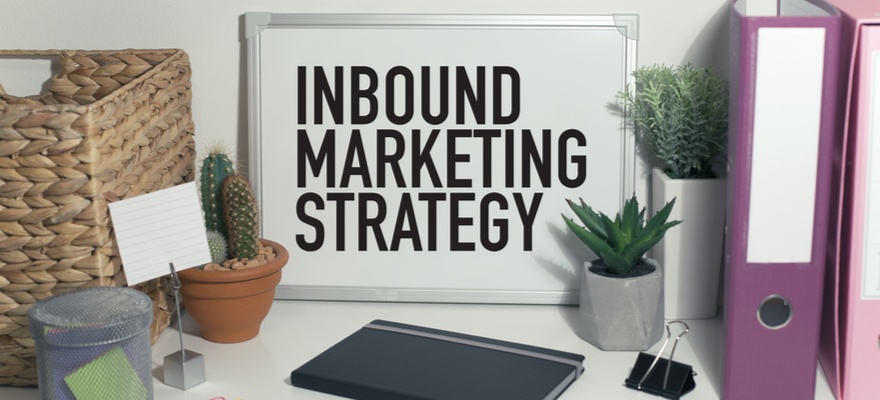Why Inbound Marketing Belongs in every B2B Marketing Strategy
Are you trying to reach the right customers at the right time? The Inbound marketing methodology is essential to any B2B marketing strategy - here's why.

In a B2B marketing strategy, the sales cycle is longer, buyers have many more factors influencing their decisions and most importantly, are not ready to buy straight away. With B2B services and products not typically bought off the page, buyers need to be nurtured before they buy – which can only be achieved by using the principles of inbound marketing. Read the rest of the blog to learn how inbound marketing can help influence your B2B buyers, nurture them and create content that speaks to them.
The mentality of your B2B buyers
The key difference we've come to realise is this – a B2C buyer’s purchasing decision is based on emotion and spontaneity. A B2B buyer, on the other hand, is influenced by logic, risk assessment, the opportunities your service or product offers and input from other team members. It’s therefore essential that B2B marketers bear this in mind when crafting content.
At the foundation of B2B inbound marketing is education. Content needs to clearly portray how your service and product benefits prospects and their business while solving their problems. Take company vehicle hire company Enterprise Flex-E-Rent as an example. A typical buyer may have identified the need for fleet vehicles, but has limited budget due to their small company size. Flex-E-Rent effectively solves this problem by presenting flexible van hire as a cost-effective and less risky solution in its blog posts.
With so many factors influencing a B2B buyer, they are likely to be more hesitant and cautious. Content should therefore actively dismiss any reservations they may have. A Flex-E-Rent buyer may be worried about signing into a lengthy contract for their fleet vehicles. Flex-E-Rent resolves this worry by explaining how vehicles can be hired on a flexible basis and returned without any unwarranted penalties. A B2C buyer, on the other hand, is more likely to engage with content that simply explains how the product benefits them on an individual basis.
The length of your sales cycle
The start of a B2B buyer’s journey is usually fuelled by the identification of a problem and therefore has a more defined purpose than in B2C scenarios. After identifying a problem, they will be browsing the web for more advice and a possible solution.
In many cases, a B2B sale is a long-term investment, such as monthly subscription based SaaS and cloud services. As a bigger investment is required by the buyer, the B2B sale cycle is much longer, as prospects need to be nurtured before they are ready to buy.
To implement a successful B2B marketing strategy, consideration needs to be paid to the complexities of the buyer’s journey, which requires specific content that answers particular questions at each stage.
Typically, a B2B buyer will go through these stages before they are ready to buy:
Awareness – A prospect has realised that they have a potential problem and is seeking further advice. At this stage, research reports and educational content should be implemented, helping prospects to define their problem.
Consideration – The prospect has defined their problem and is now looking for a solution. Content which highlights the various different solutions to the problem (such as comparison white papers) appeals to prospects at this stage. Content should present your service or product as the best solution, explaining its advantages over alternative solutions.
Decision – At this stage, prospects have decided on their preferred solution and are ready to buy. It is acceptable to be promotional at this stage. Vendor comparisons, case studies and demos should be used to showcase your advantage over competitors.
Adapting your content
In B2B, your products and services are more likely to have a niche audience that will understand and expect a level of industry jargon (but only when it adds value or explanation). Furthermore, in a B2B environment, decision-makers want to hear from you. 40% of buyers care about your knowledge and expertise, especially if it's credible and authoritative. Because they are solely results-focused, it's no surprise that over 70% of B2B buyers love reading original research and is highly influential when it comes to purchasing decisions. Therefore, it's worth quite the bit of effort and you should consider creating eBooks, guides, whitepapers and infographics that can demonstrate your research. This way, you can help alleviate your buyers' pains and challenges and portray your brand as a thought leader in your industry.
 Ian Guiver
Ian Guiver